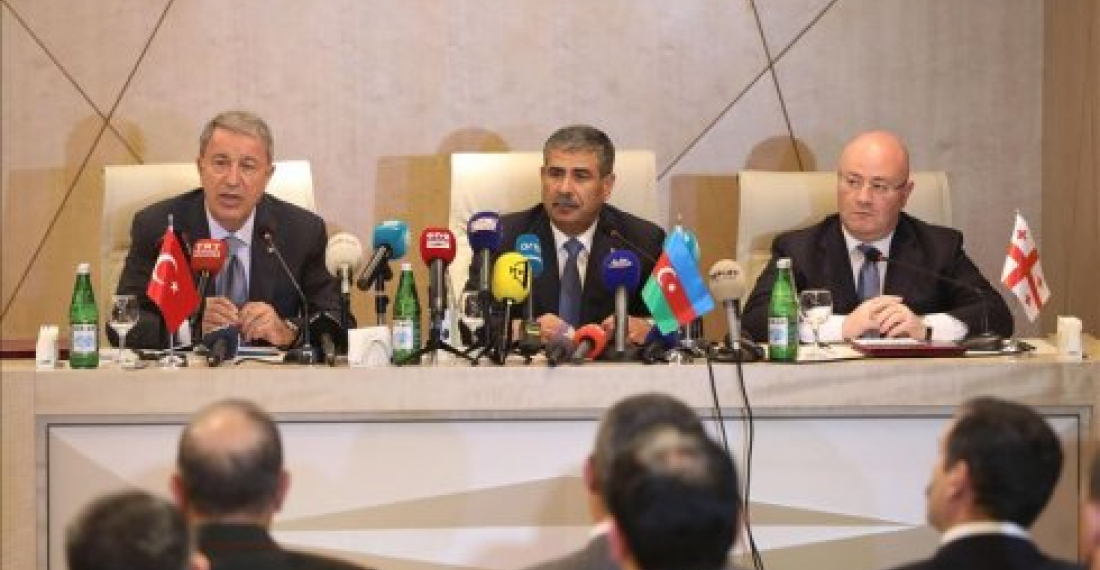The 7th trilateral meeting of the defence ministers of Azerbaijan, Georgia and Turkey was held in the city of Gabala in Azerbaijan on Wednesday (12 June).
Speaking at the opening ceremony of the meeting, Turkish Defence Minister Hulusi Akar said the defence ministers of three "friendly, brotherly and allied countries" will evaluate the needs of their countries and region in terms of security and defence.
"We continue to work for stability, peace and tranquility, which will be extremely beneficial for our countries as well as the region," Akar said.
Akar added that Turkey, Azerbaijan and Georgia get strength from the common historical and cultural unity.
He underlined that relations between the three countries, which are "founded on an unshakable foundation", have reached the dimension of strategic partnership.
The meeting was closed to the media following the opening speeches.
Azerbaijani Defence Minister Zakir Hasanov and Georgian Defence Minister Levan Izoria are also attending the meeting.
source: commonspace.eu with agencies
photo: The 7th trilateral meeting of the defence ministers of Azerbaijan, Georgia and Turkey was held in the city of Gabala in Azerbaijan on Wednesday (12 June) (picture courtesy of Anadolu news agency, Ankara).







